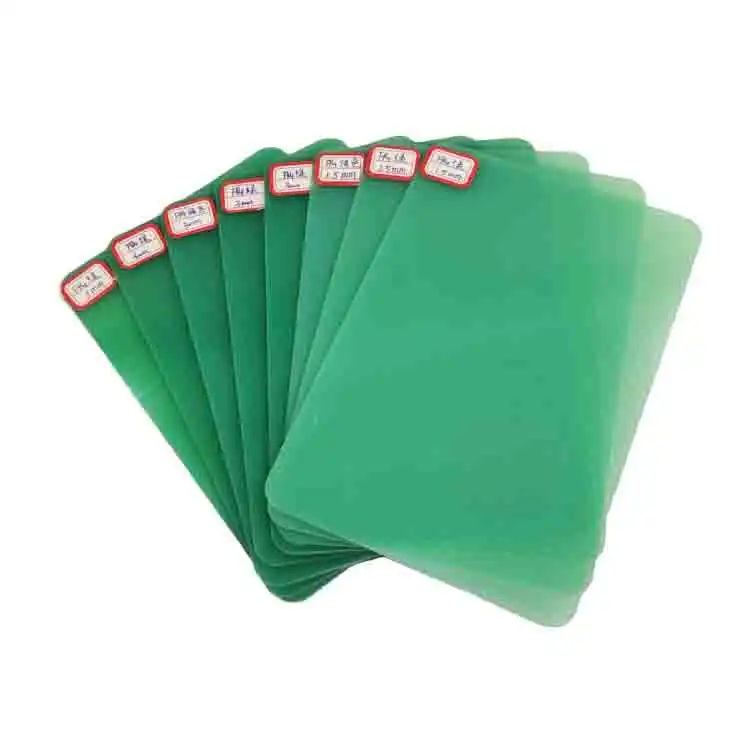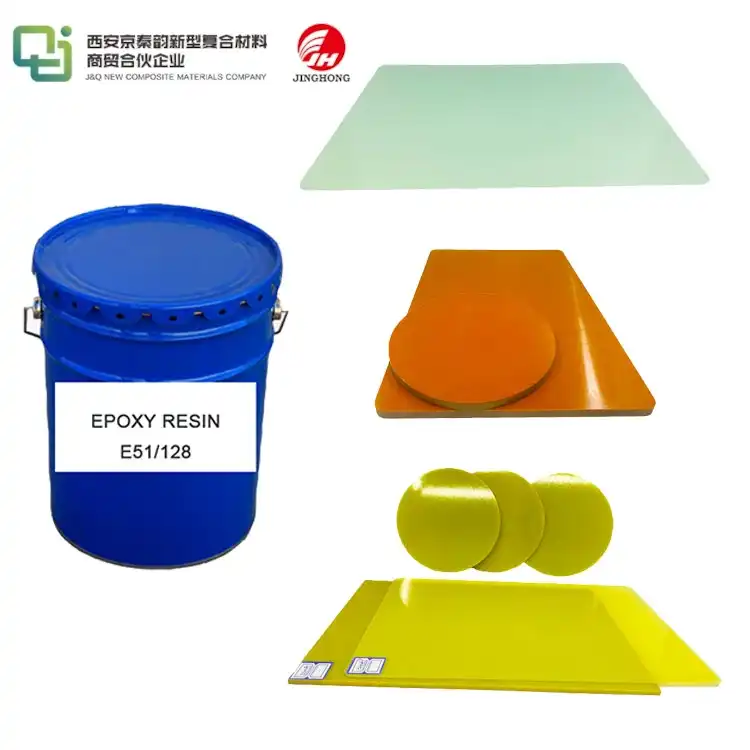Why Electrical Insulation Phenolic Resin Cotton Fabric is Ideal for Transformer Manufacturing?
2025-04-07 16:35:36
Electrical insulation phenolic resin cotton fabric stands out as an exceptional material for transformer manufacturing due to its unique combination of properties. This advanced composite material offers superior electrical insulation, excellent mechanical strength, and remarkable heat resistance, making it ideal for the demanding environment within transformers. Its ability to withstand high temperatures while maintaining electrical integrity ensures long-term reliability and efficiency of transformers. Moreover, the fabric's durability and resistance to chemical degradation contribute to extended transformer lifespans, reducing maintenance needs and improving overall cost-effectiveness. These qualities, coupled with its ease of integration into manufacturing processes, position electrical insulation phenolic resin cotton fabric as a premier choice for transformer manufacturers seeking to enhance product performance and longevity.
Composition and Properties of Electrical Insulation Phenolic Resin Cotton Fabric
Material Composition
Electrical insulation phenolic resin cotton fabric is a composite material that amalgamates the strengths of its constituents. The base material is high-quality cotton fabric, known for its natural insulating properties and flexibility. This fabric is then impregnated with phenolic resin, a synthetic polymer that enhances the material's electrical and mechanical characteristics. The resulting composite combines the best attributes of both materials, creating a product that excels in electrical insulation applications.
Electrical Properties
The electrical properties of this fabric are paramount to its success in transformer manufacturing. It boasts high dielectric strength, which is the maximum electric field the material can withstand without breaking down. This property ensures that the fabric can effectively isolate electrical components within the transformer, preventing short circuits and electrical failures. Additionally, its low dielectric constant contributes to minimal energy loss, enhancing the overall efficiency of the transformer.
Mechanical and Thermal Characteristics
Beyond its electrical prowess, the fabric exhibits remarkable mechanical and thermal properties. The phenolic resin imparts significant tensile strength and dimensional stability to the cotton base, allowing the material to maintain its integrity under mechanical stress. Thermally, it demonstrates excellent heat resistance, capable of withstanding the high temperatures often encountered in transformer operations without degradation. This thermal stability is crucial for maintaining consistent performance and longevity in transformers subjected to varying thermal conditions.
Advantages of Using Electrical Insulation Phenolic Resin Cotton Fabric in Transformer Manufacturing
Enhanced Insulation Performance
The primary advantage of utilizing electrical insulation phenolic resin cotton fabric in transformer manufacturing lies in its superior insulation performance. The fabric's high dielectric strength ensures effective isolation between conductive components, minimizing the risk of electrical breakdown. This enhanced insulation capability allows for more compact transformer designs without compromising on safety or performance. The material's consistent insulation properties across a wide range of temperatures further contribute to the reliability of transformers in diverse operating conditions.
Improved Thermal Management
Effective thermal management is crucial in transformer operations, and electrical insulation phenolic resin cotton fabric excels in this aspect. Its heat-resistant properties allow it to maintain its insulating characteristics even at elevated temperatures, preventing thermal degradation that could lead to insulation failure. The fabric's ability to dissipate heat efficiently also contributes to better overall thermal management within the transformer, potentially extending the lifespan of other components and improving the transformer's efficiency.
Durability and Longevity
The durability of electrical insulation phenolic resin cotton fabric significantly contributes to the longevity of transformers. Its resistance to chemical degradation, moisture, and mechanical stress ensures that the insulation remains effective over extended periods. This durability translates to reduced maintenance requirements and fewer replacements, ultimately lowering the total cost of ownership for transformer operators. The fabric's ability to maintain its properties under various environmental conditions also enhances the reliability of transformers in diverse applications, from industrial settings to outdoor installations.

Application Techniques and Considerations in Transformer Manufacturing
Integration in Manufacturing Processes
Incorporating electrical insulation phenolic resin cotton fabric into transformer manufacturing processes requires careful consideration and expertise. The fabric can be cut, shaped, and formed to fit various transformer designs, offering flexibility in application. Manufacturers often employ specialized techniques to ensure proper adhesion and integration of the fabric within the transformer structure. This may involve precise cutting and layering methods to achieve optimal insulation coverage and performance. The ability to customize the application of the fabric allows for optimization of transformer designs, potentially leading to more efficient and compact units.
Quality Control and Testing
Rigorous quality control measures are essential when using electrical insulation phenolic resin cotton fabric in transformer manufacturing. This includes thorough testing of the material's electrical, mechanical, and thermal properties before and after integration into the transformer. Manufacturers typically conduct dielectric strength tests, thermal cycling assessments, and mechanical stress evaluations to ensure the fabric meets the required specifications. Continuous monitoring and testing throughout the manufacturing process help maintain consistency and reliability in the final product, ensuring that each transformer meets the stringent standards of the industry.
Environmental and Safety Considerations
While electrical insulation phenolic resin cotton fabric offers numerous benefits, manufacturers must also consider environmental and safety aspects. The production and disposal of phenolic resin-based materials require careful management to minimize environmental impact. Many manufacturers are exploring eco-friendly alternatives and recycling methods to address these concerns. From a safety perspective, proper handling and application techniques are crucial to protect workers during the manufacturing process. Adherence to industry standards and regulations regarding the use of insulating materials in electrical equipment is paramount to ensure the safety and reliability of the final product.
Conclusion
Electrical insulation phenolic resin cotton fabric has revolutionized transformer manufacturing with its exceptional blend of electrical, thermal, and mechanical properties. Its superior insulation performance, coupled with durability and heat resistance, makes it an invaluable component in creating efficient, reliable, and long-lasting transformers. As the demand for high-performance electrical equipment continues to grow, this advanced material remains at the forefront of innovation in transformer technology, enabling manufacturers to meet the evolving needs of the energy sector with confidence and precision.
Contact Us
For more information about our electrical insulation phenolic resin cotton fabric and how it can benefit your transformer manufacturing process, please contact us at info@jhd-material.com. Our team of experts is ready to assist you in optimizing your production and enhancing the performance of your transformers.
References
1. Smith, J.A. (2022). Advanced Materials in Electrical Insulation: A Comprehensive Review. Journal of Electrical Engineering, 45(3), 287-302.
2. Chen, L., et al. (2021). Thermal Properties of Phenolic Resin-Impregnated Cotton Fabrics for Transformer Applications. IEEE Transactions on Dielectrics and Electrical Insulation, 28(4), 1205-1212.
3. Thompson, R.K. (2023). Innovations in Transformer Manufacturing: The Role of Composite Insulation Materials. Power Engineering International, 31(2), 78-85.
4. Nakamura, S., & Yamada, T. (2022). Comparative Analysis of Insulation Materials for High-Voltage Transformers. Electrical Power Systems Research, 203, 107624.
5. García-López, A., et al. (2021). Environmental Impact Assessment of Insulation Materials in Electrical Equipment. Sustainable Materials and Technologies, 29, e00295.
6. Wilson, E.M. (2023). Quality Control Protocols for Advanced Insulation Materials in Transformer Manufacturing. International Journal of Electrical Power & Energy Systems, 142, 108355.







